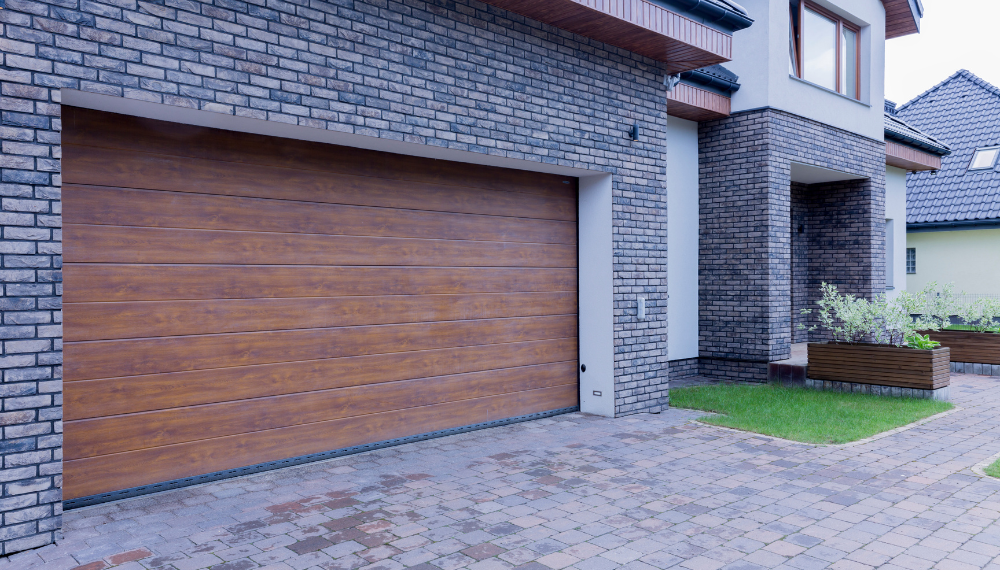How Long Do Garage Doors Last? Key Factors That Affect Their Lifespan

“Ever wondered, ‘How long do garage doors last?’ Discover the surprising lifespan of your garage door and the key factors that can extend its life!”
Let me set the scene: It’s a crisp Monday morning, and I’m running late (because life). I jump into my car, coffee in hand, press the garage door opener, and… nothing. Not a sound. Not even the courtesy of a groan from the ancient beast that’s been holding on for dear life.
As I sat there staring at my stubborn garage door, it hit me, I had no clue how long these things are supposed to last and I need a plano tx garage door repair. Spoiler alert: it’s longer than I expected, but only if you treat them right.
Garage doors aren’t just a convenience; they’re the unsung heroes of home security and curb appeal. They protect your car, keep your stuff safe, and let’s be honest, they’re the first thing people notice when they pull up to your house.
So, how long do garage doors last? And what can you do to keep yours in top shape? Let’s dive into the details and find out.
Understanding the Average Lifespan of a Garage Door

Garage doors aren’t exactly one-size-fits-all when it comes to lifespan. On average, you can expect them to last anywhere from 15 to 30 years. The actual number depends on factors like the material, how often you use it, and whether you’re giving it the TLC it deserves.
For instance, a steel door might outlast its wooden counterpart because it’s less susceptible to weather damage. On the flip side, wooden doors bring unmatched charm but require more maintenance, which can affect how long they stay functional.
Importance of Lifespan Knowledge
Why does it even matter to know your garage door’s lifespan? Simple, planning ahead saves you money and stress. When you know what to expect, you’re less likely to get blindsided by a breakdown at the worst possible time (trust me, it’s always the worst time). Plus, understanding how long your door will last helps you budget for repairs or replacements before they become urgent.
Key Factors Affecting Garage Door Lifespan
Not all garage doors are created equal, and their lifespan can vary greatly depending on several key factors. Whether it’s the material they’re made of, how often they’re used, or even the weather they endure, each detail plays a role in determining how long your garage door will stand the test of time.
Let’s take a closer look at the elements that can either extend or shorten the life of your trusty garage door.
Material Quality
The material of your garage door plays a huge role in how long it’ll stick around.
- Steel Doors: These are like the overachievers of garage doors—durable, low-maintenance, and built to last 20 to 30 years. Just make sure they’re coated to prevent rust.
- Wooden Doors: Stunning, but high-maintenance. They can last 15 to 30 years with proper care, but they’ll need regular sealing or staining to fend off weather damage.
- Aluminum Doors: Lightweight and rust-resistant, aluminum doors typically last 20 to 25 years. They’re great for humid climates but can dent easily.
- Fiberglass Doors: Resistant to moisture and less likely to warp, fiberglass doors boast a lifespan of 20 to 30 years, making them a solid choice for coastal areas.
Usage Frequency
Think of your garage door like a car—use it every day, and it’s going to wear out faster. A standard garage door is designed to handle 10,000 cycles (one cycle being a full open and close). If you’re using it multiple times a day, those cycles add up fast.
Maintenance Practices
This one’s a no-brainer: the better you take care of your garage door, the longer it’ll last. Regular lubrication, tightening screws, and cleaning tracks can prevent small issues from turning into big, expensive problems.
Environmental Factors
Mother Nature can be tough on garage doors. If you live in a humid or coastal area, moisture can lead to rust or warping. Extreme temperatures can mess with the door’s insulation and mechanics. And if you’re in an area with heavy snowfall, that extra weight can take a toll.
Installation Quality
Even the best garage door won’t last if it’s not installed properly. Poor alignment or loose components can cause wear and tear much faster than normal. Always hire a professional to make sure everything is set up correctly.
Signs Your Garage Door May Need Replacement

Garage doors are like any other part of your home, eventually, they show their age. But how do you know when it’s time to move on from repairs and invest in a new one? The signs aren’t always glaring, but if you pay attention, your garage door might be trying to tell you it’s ready for retirement. Let’s break down the red flags you shouldn’t ignore that helps you transfer your decision.
Operational Issues
Is your garage door making noises it shouldn’t? Struggling to open or close? These are red flags that something’s not right. While some issues can be fixed with repairs, persistent problems might mean it’s time for a replacement.
Physical Damage
Visible cracks, rust, or sagging panels aren’t just cosmetic concerns—they’re signs of structural weakness. If your door looks like it’s been through a war, it’s probably time to say goodbye.
Frequent Repairs
If you’re calling the repair guy more often than you’d like, it might be more cost-effective to invest in a new door. Think of it as cutting your losses before things get worse.
Tips to Extend the Lifespan of Your Garage Door
A garage door is an investment, and like any investment, you want to get the most out of it. The good news? With a little care and attention, you can significantly extend its lifespan and keep it running smoothly for years to come. It’s all about being proactive rather than reactive. Here are some practical tips to help your garage door stand the test of time.
Regular Maintenance
Make it a habit to check your garage door every month. Look for loose screws, test the balance, and listen for unusual sounds. And don’t skip the annual professional inspection—it’s like a check-up for your door.
Timely Repairs
Don’t wait until a small problem becomes a big headache. If you notice something off, like a misaligned track or a frayed cable, get it fixed ASAP.
Upgrade Components
Sometimes, replacing individual parts can give your door a second life. Upgrading to high-quality springs, rollers, or even a better motor can make a huge difference in performance and longevity.
Conclusion
So, how long do garage doors last? With the right care and attention, they can easily hit that 20-30 year mark. But like anything in life, they need a little love to stay in top shape.
Whether you’re trying to squeeze a few more years out of your current door or planning for a replacement, understanding these key factors can save you time, money, and stress. Take care of your garage door, and it’ll take care of you, no more surprise breakdowns or embarrassing banshee noises at 7 a.m.



